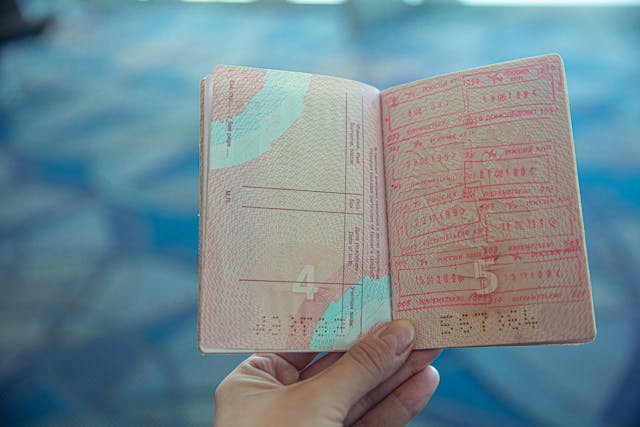See how immigration lawyers guide temporary residence applications, avoid costly mistakes, and boost your chances of success in Canada.
Applying for temporary residence, whether as a visitor, student, or worker, may seem straightforward, especially with online forms and government guides available. However, immigration officers reject thousands of applications each year due to avoidable errors, missing documentation, or insufficient explanation of the applicant’s intentions. These denials can be costly, emotionally distressing, and may impact future immigration efforts.
This article explores the most common mistakes people make when applying for temporary residence, and explains how working with an experienced immigration law firm in Toronto can significantly reduce the risk of rejection.
What You'll Discover:
Understanding Temporary Residence
Temporary residence allows foreign nationals to stay in a country for a limited time under a specific purpose: tourism, study, work, or family visits. In Canada, for example, the main types of temporary residence include:
- Visitor visas or electronic travel authorizations (eTAs)
- Study permits
- Work permits (employer-specific or open work permits)
- Temporary Resident Permits (TRPs) for inadmissible individuals
Though the application processes vary by visa type and country, they all require the applicant to satisfy immigration authorities that they will comply with the terms of entry and leave when their authorized stay ends.
Common Mistakes in Temporary Residence Applications
1. Inadequate Supporting Documents
Many applicants submit incomplete applications, failing to include documents that support their reason for travel or establish their ties to their home country. For example:
- Students may forget to include proof of funds or acceptance letters.
- Visitors might fail to show proof of accommodation or travel itinerary.
- Workers may not attach a valid job offer or Labour Market Impact Assessment (LMIA), if required.
Without strong documentation, immigration officers may question the legitimacy of your purpose for travel.
How a lawyer helps:
An immigration lawyer ensures you include every document necessary and that your application presents a consistent and persuasive narrative. They also know what “unspoken” information officers typically look for and help tailor the evidence accordingly.
2. Weak Proof of Ties to Home Country
A major reason for rejection is when an immigration officer doubts that an applicant will leave at the end of their authorized stay. This is particularly common in visitor or student visa applications. Applicants must show strong social, economic, or familial ties to their home country.
Common mistakes include:
- Not including evidence of employment, property ownership, or family obligations.
- Submitting only a generic “letter of intent” with no supporting proof.
- Having insufficient funds with no reasonable explanation of financial support.
How a lawyer helps:
A lawyer can advise you on how to effectively demonstrate your home country ties, through employment letters, family documentation, or bank records, and strengthen your case against concerns of “immigration intent.”
3. Misrepresentation or Inaccurate Information
Falsifying documents, omitting past refusals, or misstating facts, even unintentionally, can lead to refusal and even a ban from applying for several years. Many applicants mistakenly believe they can hide prior immigration issues or criminal records.
Examples include:
- Failing to disclose previous visa refusals or overstays.
- Hiding a past conviction or arrest.
- Misreporting financial status.
How a lawyer helps:
Immigration lawyers ensure your application is complete, truthful, and legally sound. They help identify and disclose past issues appropriately, sometimes including legal arguments or affidavits to explain concerns and demonstrate rehabilitation.
4. Wrong Visa Category or Incomplete Understanding of Rules
Applying under the wrong category or not meeting the eligibility requirements leads to automatic rejection. For instance:
- A person wanting to study short-term may incorrectly apply for a study permit instead of a visitor visa.
- A worker may not understand they need a job offer with an LMIA or may apply for an open work permit when they are not eligible.
How a lawyer helps:
An immigration lawyer helps identify the correct visa category based on your goals and eligibility. They can also recommend alternative routes if the preferred one is unavailable or risky.
5. Inadequate Personal Statement or Letter of Explanation
Often, the only place applicants can explain their circumstances, intent, and personal background is through a written statement. Many people either skip this letter or submit one that is too vague, generic, or poorly written.
How a lawyer helps:
Lawyers help craft a strong, credible narrative that addresses your intent, your background, your ties to your home country, and your compliance with immigration law. They know how officers assess such statements and ensure your explanation supports the rest of your application.
6. Overlooking Country-Specific or Program-Specific Requirements
Some countries or visa streams have unique rules, such as biometrics, medical exams, police clearance certificates, or interviews. Missing these steps can delay or cancel your application.
How a lawyer helps:
A lawyer stays up to date with both general immigration law and specific program requirements. They provide personalized checklists and ensure your application is complete and timely, avoiding last-minute surprises.
7. Submitting Without Reviewing for Consistency and Errors
Applications are often refused simply because of inconsistencies, such as dates not matching across forms, or financial figures conflicting with bank statements. Small mistakes can lead to major setbacks.
How a lawyer helps:
Lawyers review your entire application with a critical eye, cross-referencing every document and ensuring consistency. This minimizes risk of rejection due to clerical or formatting errors.
8. Not Responding Correctly to Requests for More Information
If an immigration officer requests additional documents or clarification, it’s important to respond quickly and appropriately. Many applicants ignore or misunderstand these requests, missing deadlines or submitting irrelevant material.
How a lawyer helps:
A lawyer can manage your communication with immigration authorities and ensure your response meets both deadlines and legal standards.
The Benefits of Hiring an Immigration Lawyer
While it is possible to apply for temporary residence on your own, doing so comes with risks, especially if your situation is complex or if you’ve faced previous refusals.
An immigration lawyer can:
- Assess your eligibility and recommend the best application strategy.
- Help you gather and organize supporting documents.
- Write or edit a compelling personal statement.
- Ensure all forms and attachments are accurate, complete, and legally sound.
- Identify and address any potential red flags or past issues.
- Respond to immigration requests or notices on your behalf.
- Maximize your chances of approval while minimizing delays or rejections.
Final Thoughts
Temporary residence applications are more than just paperwork, they are legal requests to enter and stay in a country under specific conditions. Even small mistakes can have lasting consequences. By understanding the most common errors and working with an immigration lawyer, you can greatly improve your chances of success.
Whether you’re applying for a visitor visa, study permit, or work authorization, expert legal guidance can make the difference between approval and rejection.





